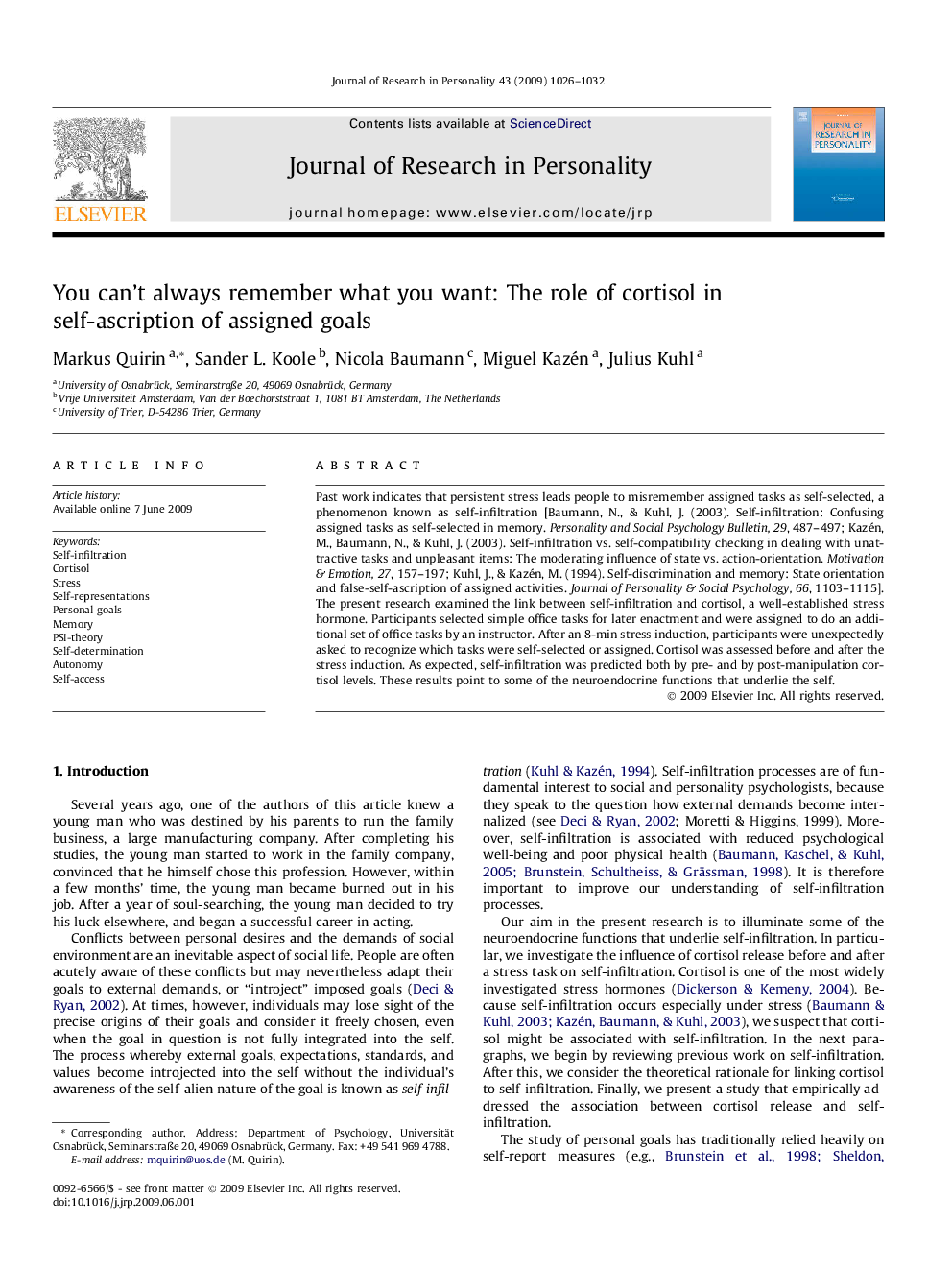| Article ID | Journal | Published Year | Pages | File Type |
|---|---|---|---|---|
| 951502 | Journal of Research in Personality | 2009 | 7 Pages |
Past work indicates that persistent stress leads people to misremember assigned tasks as self-selected, a phenomenon known as self-infiltration [Baumann, N., & Kuhl, J. (2003). Self-infiltration: Confusing assigned tasks as self-selected in memory. Personality and Social Psychology Bulletin, 29, 487–497; Kazén, M., Baumann, N., & Kuhl, J. (2003). Self-infiltration vs. self-compatibility checking in dealing with unattractive tasks and unpleasant items: The moderating influence of state vs. action-orientation. Motivation & Emotion, 27, 157–197; Kuhl, J., & Kazén, M. (1994). Self-discrimination and memory: State orientation and false-self-ascription of assigned activities. Journal of Personality & Social Psychology, 66, 1103–1115]. The present research examined the link between self-infiltration and cortisol, a well-established stress hormone. Participants selected simple office tasks for later enactment and were assigned to do an additional set of office tasks by an instructor. After an 8-min stress induction, participants were unexpectedly asked to recognize which tasks were self-selected or assigned. Cortisol was assessed before and after the stress induction. As expected, self-infiltration was predicted both by pre- and by post-manipulation cortisol levels. These results point to some of the neuroendocrine functions that underlie the self.
